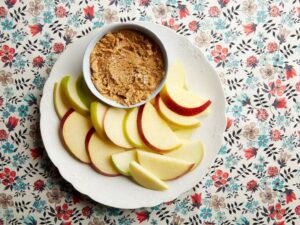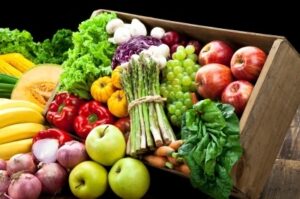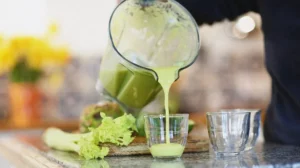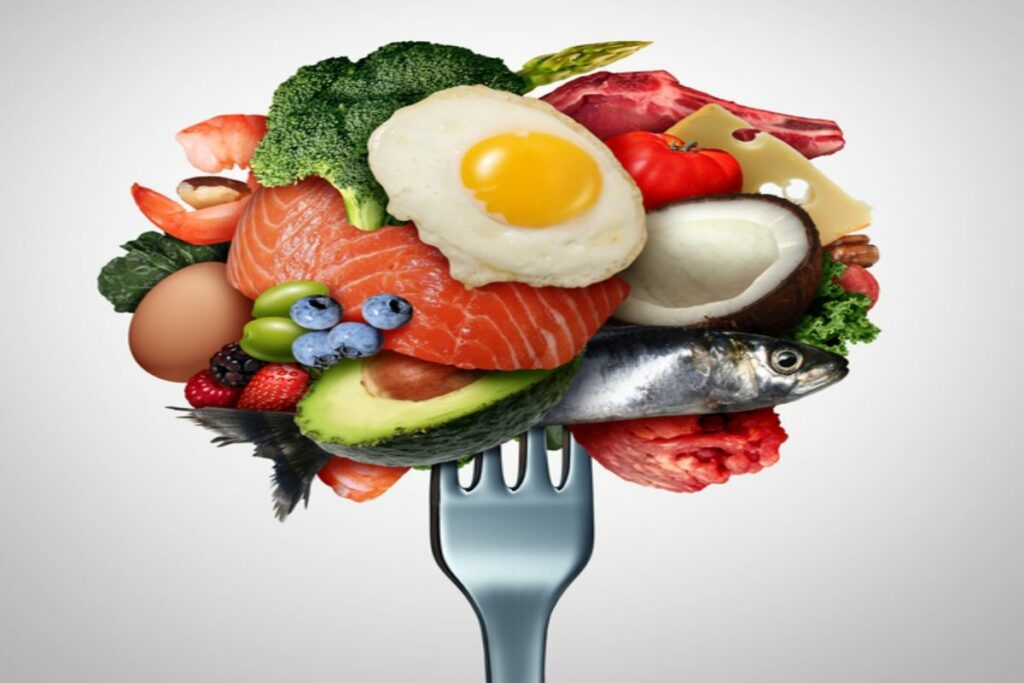If you’re struggling to lose weight, it can seem like an uphill battle. After all, the most important component of weight loss is calorie intake. That’s why it’s so important to make sure that the food you eat is actually lower in calories. Find out which low-calorie foods will help you achieve your goal in this article!
Contents
Is It Good To Have A Low-Calorie Diet?
When you’re trying to lose weight, it’s important to focus on eating foods that will help you achieve your goals. That means incorporating plenty of low-calorie foods into your diet.
There are a variety of low-calorie foods that can help you lose weight, including fruits, vegetables, lean protein, and whole grains. These foods are packed with nutrients and fiber that will keep you feeling full throughout the day. Plus, they’re low in calories so you can eat more without sabotaging your weight loss goals.
Low-calorie foods are great for weight loss because they provide your body with the nutrients it needs without all the extra calories. They can help you feel full and satisfied after meals, so you’re less likely to overeat. And, they often contain important vitamins and minerals that are essential for good health.
What Can You Eat On Low-Calorie Diet?

There are a number of low-calorie food groups that you can eat to help you maintain your weight. They also provide satiating energy so you don’t feel hungry later on. Some of these food groups include:
Lean protein
Lean protein is a key component of any weight loss plan. It helps to keep you feeling full and satisfied, which can help you avoid overeating. In addition, lean protein helps to promote muscle growth and maintenance. When you combine lean protein with other healthy foods in your diet, you can create a balanced and nutritious eating plan that will help you lose weight and keep it off.
Protein-rich foods also reduce the levels of the hunger hormone “ghrelin”, and increase the levels of peptide YY, a hormone that makes us full feel. Lean protein is a great energy source and helps keep you full. It can be found in chicken, fish, tofu, and legumes.
Whole grains
Whole grains are a great source of fiber, which can help keep you feeling fuller and longer and help reduce the number of calories you consume. In addition, whole grains are high in antioxidants, which can protect your body from harmful molecules. Overall, consuming whole grains can help you maintain a healthy weight and reduce your risk of developing obesity or other chronic health conditions. They can be found in breads, cereals, rice, and pasta.
Fruits and vegetables

Fruits and vegetables are a good way to add healthy nutrients to your diet, as well as reduce calories. According to the Centers for Disease Control and Prevention (CDC), one cup of cut-up fruits and vegetables has about 60-120 calories, so eating them can help you lose weight.
Additionally, many of the vitamins and minerals found in fruits and vegetables are important for health. Eating a variety of different fruits and vegetables can help you get these nutrients. They can be eaten raw, cooked, or as part of a dish.
Beans and lentils
Beans and lentils are two of the most versatile and nutrient-rich foods on the planet. They’re a great source of fiber, protein, and electrolytes, which can help keep you feeling full longer and help you lose weight. In addition to their weight loss benefits, beans and lentils are excellent sources of antioxidants and other vitamins and minerals. One cup of cooked beans or lentils provides about 25% of the recommended daily value for fiber, as well as about 7 grams of protein.
In addition, beans and lentils are good sources of magnesium, potassium, folate, thiamin, vitamin B6, vitamin C, phosphorus, and zinc. These nutrients can help support your body’s ability to burn calories and stay healthy overall.
Beans and lentils also contain a variety of other compounds that have health benefits. For example, they’re high in polyunsaturated fatty acids (such as omega-3s), which can help reduce the risk of heart disease. And they’re a good source of antioxidants, which can protect your body against damage from free radicals. They can be used in soups, salads, or as a side dish.
Nuts and seeds
Nuts and seeds are a great way to add healthy fats and protein to your diet, which can help you lose weight. If you’re trying to lose weight, it’s important to include healthy foods in your diet that will help you reach your goal. Nuts and seeds are a great source of both healthy fats and protein.
Nuts and seeds are high in calories, but because they’re also high in nutrients like fiber and protein, they can help you stay full longer and limit how many calories you eat overall. Including nuts and seeds in your diet can help you reduce your calorie intake by up to 300 calories per day. This means that they can be a valuable tool for weight loss, especially if you’re looking to cut down on your calorie intake without having to spend too much time preparing meals.
If you’re new to eating nuts and seeds, start by gradually adding them to your diet over time. You don’t need to eat them all at once, instead, try incorporating them into different dishes or snacks throughout the day. This way, you’ll get the most benefit from their nutritional value while minimizing the number of calories that you consume.
Recipes Of Low-Calorie Foods
If you’re looking to cut down on calories and lose weight, there are plenty of low-calorie foods that can help you do just that. Here are some recipes for low-calorie meals that will help you reach your weight loss goals:
- Egg White Omelet with veggies: This healthy and filling breakfast option is high in protein and low in calories. Simply whisk together some egg whites, your favorite veggies, and a bit of shredded cheese. Then cook in a non-stick pan until the omelet is set.
- Turkey and Veggie Wrap: This easy lunch or dinner option is perfect for those on the go. Simply wrap up some lean turkey, shredded lettuce, diced tomatoes, and avocado in a whole wheat tortilla.
- Salmon with Roasted Brussels Sprouts: This healthy and flavorful meal is packed with protein and nutrients. Simply roast some Brussels sprouts in the oven, then top with a grilled or baked salmon fillet.
- Quinoa Bowl with Black Beans and Corn: This hearty bowl makes a great vegetarian option for lunch or dinner. It’s packed with fiber and protein from quinoa, black beans, and corn. Top it off with some diced avocado, tomatoes, and a lime wedge for extra flavor.
Tips For Eating Out
 When you’re trying to lose weight, eating out can be a challenge. But with a little planning, you can enjoy a healthy meal while sticking to your diet. Here are some tips for eating out:
When you’re trying to lose weight, eating out can be a challenge. But with a little planning, you can enjoy a healthy meal while sticking to your diet. Here are some tips for eating out:
- Choose restaurants that offer healthy options: Some restaurants now offer healthier versions of their menu items, so look for those options.
- Start with a salad: A salad is a great way to fill up fiber and nutrients without consuming too many calories.
- Limit your intake of sauces and dressings: Sauces and dressings can add a lot of extra calories to your meal, so go easy on them.
- Focus on lean protein sources: Lean proteins like chicken or fish are good choices for weight loss because they’re low in fat and calories but high in protein.
- Fill up on veggies: Vegetables are low in calories but high in nutrients, so load up your plate with them.
- Don’t forget about dessert: Just because you’re trying to lose weight doesn’t mean you have to skip dessert altogether. Just choose something light and healthy, like fruit or yogurt.
Conclusion
There are many different types of low-calorie foods that can be incorporated into a healthy diet. It is important to find foods that appeal to you and fit into your lifestyle. There are many different ways to cut calories without sacrificing the taste or nutrition of food. Some tips for selecting low-calorie foods include reading ingredient labels, choosing leaner meats and seafood, and avoiding high-fat dairy products and processed foods.
Consider contacting FitMantra for additional information on nutrition and fitness. You can also get in touch with their nutrition experts through our online nutrition counseling, who can guide you through the process and help you achieve your fitness goals. You can also lose weight with the help of our weight loss program. Download our FitnessApp on Android to know more about us.
